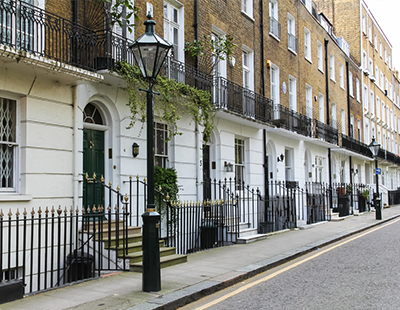
Estate agents have been urged to follow the example of the travel agency industry and make high street offices more stimulating and modern in a bid to improve the ‘customer experience’ and help fight off competition from the online sector.
Peter Veash, chief executive of The BIO Agency - a digital business consultancy - says media hype suggests new online agencies such as Purplebricks are beating traditional firms, whereas the reality is that onliners have only four per cent market share of sales.
But he says recent developments such as moves by Countrywide and Zoopla to buy into tech start-ups, and the arrival of OpenRent as a no-fees lettings portal, suggests there is already continual innovation even in the fledgling online services.
In the light of that, Veash says, “it’s astounding that the estate agent industry hasn’t jumped at the chance to breathe new life into its often dull in-store experience.”
Writing a technology contribution in The Guardian newspaper, he says: “Time and time again we see the same beige interiors, the same sad window displays and mountains of dreary paperwork being pushed back and forth over desks. To make matters worse, there is a lack of consistency ... from branch to branch, which means that for a lot of prospective buyers and sellers, visiting a high street estate agent isn’t just a drag, it’s also a gamble.”
He says estate agents know more than most the importance of an attractive and exciting physical environment - “when homebuyers traipse from viewing to viewing, it definitely isn’t for the fun of it, it’s because the look and feel of a home is one of the most pivotal factors in making a purchase decision” he believes.
So he suggests agents take a look at what other high street services are doing, in particular travel agencies.
“Thomas Cook ... has introduced virtual holidays in-store that inspire customers using immersive 360-degree tours of hotels and resorts ... or Virgin Holidays, which has taken the concept of try-before-you-buy to a new level by allowing customers to peer through a Google Cardboard set” he suggests.
Only by learning from examples of innovative physical high street shops can estate agents future-proof their position in the future digital economy, he says.
It’s a provocative but interesting read, and you can see it here.













.png)


.jpg)
.jpg)





%20-%20IMAGE%20Client%20Accounting%20%E2%80%93%20what%20are%20your%20options.jpg)


.png)
.png)
.png)
%20(002).png)






%20(002).jpg)



.png)




Join the conversation
Jump to latest comment and add your reply
This completely misses the point.
Back in the 90's Direct Line started the move towards online or direct insurance. Central operations centre, open longer hours. There are not many high street insurance brokers left.
Customers don't want to take time out to visit an office. They want convenience. 24/7 and do it from their home. That's why BHS is dying and Amazon is flying.
Over 90% of buyers start their journey online. The investment has to be where your customers are. So that means allowing them to book appointments online, or by phone, 24/7, make applications for tenancy, pay rent, make repair requests, make offers etc etc.
And there are an army of agents who'll resist this. It's change after all and there are costs involved etc etc. But you can use 3rd party resources for live chat. It's easy to integrate online dynamic calendars into websites and you can bolt on call answering with providers like MoneyPenny.
These are not as good as dedicated people, but a quantum leap forward on what most agents are doing now.
And if you don't adapt, Darwin let's you know what will happen.
Focus on the customers wants. A swanky office is a great vanity project. Getting more business online is sanity project.
Glen,
Please do not make a mistake and lump all agents together as dinosaurs, as it sounds judgemental and arrogant.
Hi Terence:
You're right and I do apologise.
But what I do see is so many agents complaining about online agents - Traditional agents have what most onliners don't. A local person and local knowledge. They need swipe the best ideas that onliners bring to the table. The only difference becomes 'price'.
Then the industry has to get across the message that the cheapest agent is the one who sells the house for the most money.
Those that adapt and innovate will thrive, those who don't won't survive.
I doubt if more than low % numbers of people buy a property anymore from photos in a window. As Glen says ''its all moved on''
the people window shopping at estate agents - just as i like to do - are not in the main property buyers, they are seeing ''whats on and how how much'' and occasionally ''HOW MUCH???''
If a buyer liked a house, they would not say to themselves ''Oh I like that house, but I really didn't like the agents office - so i wont bother''
Local agents do need offices to allow their staff to work. The shop front therefore becomes a permanent high street billboard.
Given that, I would focus my attention on making the brand and outside visually memorable. People judge books by their covers.
Please login to comment